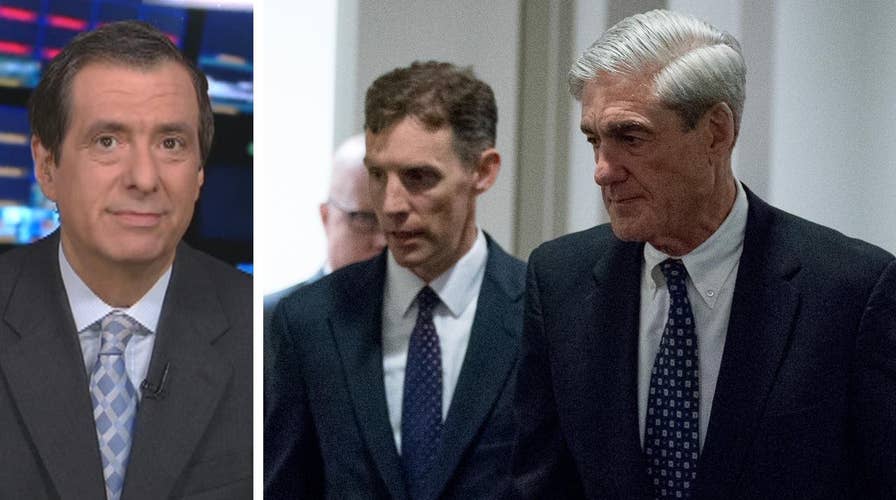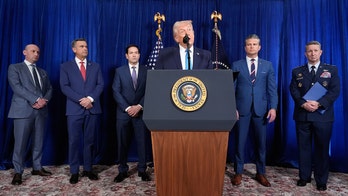Kurtz: Russia-What If there's no there there?
'MediaBuzz' host Howard Kurtz weighs in on the media admitting that the Hill's Russia probes seem to be going nowhere.
The congressional investigations into possible collusion between the Trump team and Russia seem to be going nowhere fast.
The Hill committees have been at it for many months now and haven’t come up with much of anything.
Things have reached the point where the New York Times, in an above-the-fold piece yesterday, is clearly signaling that the investigators are coming up empty-handed.
But while the Times offers numerous reasons why the probes are stalled, there is no mention of another possible explanation: that there isn’t much there to find.
Now I don’t know exactly what the committees have found. And I don’t know what Robert Mueller and his team of prosecutors have found. People like Mike Flynn and Paul Manafort appear to have problems, and just yesterday came an NBC report that the special counsel is investigating Democratic lobbyist Tony Podesta. (His firm says it’s fully cooperating.)
But potential charges about improper payments and lobbying aren’t the same as the core question of whether Trump aides and associates colluded with Moscow to influence the election. The one instance we know about, the meeting with Russian lawyers arranged by Donald Trump Jr., didn’t lead to anything. And the White House by all indications is cooperating with Mueller.
Again, I draw no premature conclusions. But administration officials, addressing what the president calls a “witch hunt,” have privately wondered what the media will do if it turns out there’s no there there.
The Times piece says the Hill investigations suffer from some common maladies:
“All three committees looking into Russian interference — one in the House, two in the Senate — have run into problems, from insufficient staffing to fights over when the committees should wrap up their investigations. The Senate Judiciary Committee’s inquiry has barely started, delayed in part by negotiations over the scope of the investigation. Leaders of the Senate Intelligence Committee, while maintaining bipartisan comity, have sought to tamp down expectations about what they might find.”
Could the media be tamping down expectations as well?
“Nine months into the Trump administration,” the Times says, “any notion that Capitol Hill would provide a comprehensive, authoritative and bipartisan accounting of the extraordinary efforts of a hostile power to disrupt American democracy appears to be dwindling.”
The story has an opening anecdote about Jared Kushner offering to stay beyond his allotted time when questioned by the House Intel committee. Republican congressman Trey Gowdy said he was in a no-win situation: If you leave now, Democrats will say you did not answer all the questions. If you stay, they will keep you here all week.
Congressional investigations are often stymied by partisan politics, as the president’s party plays defense and the opposition party plays attack dog.
But there’s also the possibility of hitting a dry hole.
“If there’s not something there,” Mark Warner, ranking Democrat on the Senate Intel panel, said recently, “I’ll be the first to acknowledge that.”

























